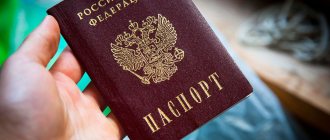ST 206 of the Criminal Code of the Russian Federation.
1. Capturing or holding a person as a hostage, committed for the purpose of forcing the state, organization or citizen to perform any action or refrain from performing any action as a condition for the release of the hostage, is punishable by imprisonment for a term of five to ten years.
2. The same acts committed: a) by a group of persons by prior conspiracy; b) has become invalid; c) with the use of violence dangerous to life or health; d) using weapons or objects used as weapons; e) in relation to a known minor; f) in relation to a woman who is known to the perpetrator to be pregnant; g) in relation to two or more persons; h) for mercenary reasons or for hire - shall be punished by imprisonment for a term of six to fifteen years with restriction of freedom for a term of one to two years.
3. Acts provided for in parts one or two of this article, if they were committed by an organized group or caused by negligence the death of a person or other grave consequences, are punishable by imprisonment for a term of eight to twenty years, with restriction of freedom for a term of one to two years. .
4. Acts provided for in parts one or two of this article, if they entailed the intentional infliction of death on a person, are punishable by imprisonment for a term of fifteen to twenty years with restriction of freedom for a term of one to two years or life imprisonment. Note. A person who frees a hostage voluntarily or at the request of the authorities is exempt from criminal liability unless his actions contain another crime.
Commentary to Art. 206 Criminal Code
1. The objective side is characterized by alternatively provided actions: a) capturing a person as a hostage, i.e. unlawful violent action that involves restricting against a person’s will his freedom to choose his place of stay; b) holding a person as a hostage, i.e. unlawful forcible obstruction of a person in his choice of his place of stay. Methods of capture and retention can be different (direct use of physical or mental violence, deception, taking advantage of the victim’s helpless state, etc.).
2. The crime is considered completed from the moment the person is actually deprived of his freedom.
3. The subjective side is also characterized by the goal of forcing the state, organization or citizen to perform any action or refrain from performing any action as a condition for the release of the hostage.
4. Part 4 implies liability for hostage-taking involving the murder of the captured person or other persons; qualifications in combination with Art. 105 of the Criminal Code is not required.
5. Note to Art. 206 of the Criminal Code provides the basis for exemption from criminal liability for this crime in connection with active repentance.
6. The delimitation of hostage-taking from kidnapping (Article 126 of the Criminal Code) and unlawful deprivation of liberty (Article 127 of the Criminal Code) (especially if actions against the victim are motivated by mercenary motives) should be carried out according to the object of the assault, the correct determination of which should be facilitated by establishing the fame of the place maintenance of the victim. Accordingly, when the victim is kidnapped and held in an unknown place and the fact of his abduction is unknown to the general public, then the act constitutes kidnapping (unlawful imprisonment); if the victim is kidnapped and held in a known place, open to the public, this constitutes hostage taking.
Article 144 part 2 of the Criminal Code of the RSFSR
On April 17, 2002, I turned to the police department with a request to initiate a criminal case under Article 145.1. of the Criminal Code of the Russian Federation on the fact of non-payment of my undisputed salary in the amount of 7,500 rubles, which should have been paid on the day of my dismissal in September 1999. The police department refused on April 26, 2002. corner. Cases guided by Art. 5.p.1. and Art. 113 Code of Criminal Procedure of the RSFSR. I applied again and was refused under Article 5. Clause 10 of the Code of Criminal Procedure of the RSFSR. But in my letter, the tax inspectorate conducted an audit and revealed that this money had been written off in the cash book without my signature and informed me that this money should be withheld from the cashier’s salary, after which the organization should transfer it in accordance with the established Regulations on non-cash payments in the Russian Federation. Immediately after the check, 7,500 rubles were transferred to my bank account from the individual Ivanov from his savings account (I requested the document from the savings bank). I do not recognize Ivanov’s money transfer as a transfer from an organization since it contains no reference to either the organization or the salary.
I reported the result of the tax inspection to the police department about the misappropriation of my salary by the cashier of this organization. The police department informed me that Ivanov transferred money for the organization, and an administrative fine of 200 rubles was imposed on the cashier of the enterprise. The police department again refused to initiate a criminal case against me, but now under paragraph 2. Article 5 of the Code of Criminal Procedure of the RSFSR.
In January 2003, I again turned to the police department with a request to initiate a criminal case against the director under Article 145.1. of the Criminal Code of the Russian Federation, against the cashier under Art. 160 of the Criminal Code of the Russian Federation and under Art. 174 of the Criminal Code of the Russian Federation for attempting to legalize funds acquired illegally (Article 160 of the Criminal Code of the Russian Federation). I again received a refusal from the police department in accordance with paragraph 2 of the first part of Art. 24, paragraph 5 of Article 27, Article 144, Article 145 and Article 148 of the Code of Criminal Procedure of the Russian Federation.
I appealed to the court with a request to cancel the decision to refuse to initiate criminal proceedings, because... I believe that I did not receive a salary from the organization. I think. That monetary circulation on the territory of the Russian Federation is strictly regulated by regulations and is drawn up with unified documents of a strictly established standard. This is also confirmed by the tax office.
I am trying to initiate a criminal case in accordance with paragraph 1 of Art. 201 of the Criminal Code of the Russian Federation Abuse of power, as against the director under Art. 145.1., and against the cashier under Article 160 of the Criminal Code of the Russian Federation. The money misappropriated by the cashier must be withheld by the enterprise from the cashier’s salary and transferred to me in a legal way from the organization’s current account. Witness testimony, in my opinion, is not considered according to Article 162 of the Civil Code of the Russian Federation, because For cash payments (transfers), a written form of transaction is established.
What (which article of the Code of Criminal Procedure or the Criminal Code of the Russian Federation) should I refer to in court (I filed a complaint to the court under Article 125 of the Code of Criminal Procedure of the Russian Federation) in order to get the court to cancel the decision of the police department to refuse to initiate a criminal case and still obtain a salary from the organization with money available legal circulation as required by the ILO Convention No. 95 on the protection of wages. I don't have a lawyer.
Sincerely, D. Kovalenko.
Second commentary to Art. 206 of the Criminal Code of the Russian Federation
1. The objective side is characterized by two alternative actions: capturing or holding a hostage.
Hostage taking is an unlawful forcible restriction of the freedom of at least one person, committed openly or secretly, then, as a rule, with an open message about it and with the setting of conditions for release.
Taking a hostage, qualified under Part 1, is accompanied by violence that is not dangerous to life or health, expressed in striking, beating, tying, holding hands, i.e. in such violence that did not entail the consequences provided for in Art. 115 of the Criminal Code.
Holding a hostage means forcibly preventing the return of his freedom, keeping him in a room that he (the hostage) cannot leave on his own.
2. The crime is over from the moment the victim is deprived of his actual freedom. A failed attempt to take a hostage is classified as an attempted crime.
3. The subjective side is characterized by direct intent and a special purpose - to force the state, organization or citizen to perform any action or refrain from performing any action as a condition for the release of the hostage (to ensure departure from the country, to transfer a large sum of money; demands for political, property, nationalistic, religious, criminal nature, etc.).
The desire of a person to protect his rights and interests in this way is combined in these cases with a violation of the established procedure. Therefore, such acts can be qualified under Art. 330 CC.
4. The subject of the crime is a person who has reached the age of 14 years.
5. Parts 2,3 and 4 contain qualifying and specially qualifying features.
6. Note to Art. 206 provides conditions for the release from criminal liability of a person who voluntarily or at the request of the authorities released a hostage, if his actions do not constitute another crime.
Legislative framework of the Russian Federation
canceled/voided Edition dated 18.05.1995
detailed information
| Name of document | “CRIMINAL CODE OF THE RSFSR” (as amended on May 18, 1995) |
| Document type | code, list, criminal code |
| Receiving authority | Sun RF |
| Acceptance date | 01.01.1970 |
| Revision date | 18.05.1995 |
| Date of registration with the Ministry of Justice | 01.01.1970 |
| Status | cancelled/lost force |
| Publication |
|
| Navigator | Notes |
“CRIMINAL CODE OF THE RSFSR” (as amended on May 18, 1995)
Article 148. Extortion
Demanding the transfer of someone else's property or the right to property or the commission of any actions of a property nature under the threat of disclosing defamatory information about the person or his relatives who own, maintain or protect this property -
shall be punishable by imprisonment for a term of up to three years, or correctional labor for a term of one to two years, or a fine of up to twenty-five times the minimum wage.
Demanding the transfer of someone else's property or the right to property or the commission of any actions of a property nature under the threat of violence against a person or his relatives, in the ownership, control or protection of which this property is located, or under the threat of damage or destruction of the property of this person or his relatives
- is punishable by imprisonment for a term of up to four years with or without confiscation of property, or correctional labor for a term of up to two years with or without confiscation of property.
Actions provided for in parts one or two of this article, committed repeatedly, or by prior conspiracy by a group of persons, or under the threat of murder or infliction of grievous bodily harm, as well as combined with violence that is not dangerous to the life and health of the victim, or with damage or destruction of property , —
shall be punishable by imprisonment for a term of up to seven years with confiscation of property.
Actions provided for in parts one or two of this article, involving the taking of hostages or causing major damage or other grave consequences,
- punishable by imprisonment for a term of five to twelve years with confiscation of property.
Actions provided for in parts one or two of this article, committed by an organized group or a particularly dangerous recidivist, as well as combined with violence dangerous to the life and health of the victim,
- punishable by imprisonment for a term of six to fifteen years with confiscation of property.
(as amended by the Law of the Russian Federation of July 1, 1994 N 10-FZ - “Russian News”, N 123, 07/06/94)
Judicial practice under Article 148 of the Criminal Code of the Russian Federation
Appeal ruling of the Judicial Collegium for Criminal Cases of the Supreme Court of the Russian Federation dated October 4, 2017 N 72-APU17-21
- March 4, 1998 by the Chita District Court of the Chita Region under Part 3 of Art. 148, part 3 art. - 148 Criminal Code of the RSFSR, Art. 222 of the Criminal Code of the Russian Federation, in accordance with Art. Criminal Code of the RSFSR to 4 years in prison. In accordance with Part 3 of Art. Criminal Code of the RSFSR to 8 years in prison to be served in a high-security penal colony. Released by order of the Ingodinsky District Court of Chita dated March 25, 2002 on parole for an unserved term of 1 year 7 months 18 days;
Appeal ruling of the Judicial Collegium for Criminal Cases of the Supreme Court of the Russian Federation dated April 4, 2017 N 48-APU17-4sp
SINGAEVSKY E.V., ... convicted on April 20, 1998 under Art. 148 part 5 of the Criminal Code of the Russian Federation to 5 years of suspended imprisonment with a probationary period of 5 years; January 31, 2000 under Art. 222 part 1 of the Criminal Code of the Russian Federation on the basis of Art. of the Criminal Code of the Russian Federation to 6 years in prison, released on December 7, 2004 after serving the sentence; October 8, 2010 under Art. 126 part 2 paragraph “a” of the Criminal Code of the Russian Federation to 7 years 11 months imprisonment,
Appeal ruling of the Judicial Collegium for Criminal Cases of the Supreme Court of the Russian Federation dated March 21, 2018 N 18-APU18-1
law enforcement agencies of the Republic of Austria to bring to criminal liability for fraud under Art. 146, part 2 art. 147, art. 148 of the Criminal Code of the Republic of Austria - left without satisfaction. Having heard the report of judge Vedernikova O.N., the speech of Ananyan A.R., lawyers Bryantsev R.N. and Vakarin N.S., who asked to cancel the resolution, the opinion of prosecutor Kurochkina D.A. on leaving the decision unchanged, Judicial Collegium
Appeal ruling of the Judicial Collegium for Criminal Cases of the Supreme Court of the Russian Federation dated June 17, 2020 No. 3-APU19-10
- June 28, 1996 under Part 2 of Art. 148 of the Criminal Code of the RSFSR to 1 year 6 months of imprisonment, released on September 3, 1997 upon completion of the sentence; sentenced to imprisonment under: - Part 2 of Art. 210 of the Criminal Code of the Russian Federation to 8 years with a fine of 350 thousand rubles. with restriction of freedom for 1 year;
Appeal ruling of the Judicial Collegium for Criminal Cases of the Supreme Court of the Russian Federation dated December 19, 2017 N 51-APU17-16
- August 15, 1994 by the Altai Regional Court (taking into account changes made by the decisions of the Rubtsovsky City Court of the Altai Territory dated March 12, 2001 and December 16, 2004) under Art. and pp. “a”, “e” art. 102 of the Criminal Code of the RSFSR, paragraphs “a”, “d”, art. 102 of the Criminal Code of the RSFSR, art. 113 Criminal Code of the RSFSR, Part 2, Art. 159 of the Criminal Code of the Russian Federation (as amended by the Federal Law of 2003), part 3 of Art. 148 of the Criminal Code of the RSFSR, in accordance with Part 1 of Art. Criminal Code of the RSFSR to 14 years 6 months in prison, with the first five years to be served in prison. Released on January 25, 2008 after serving his sentence;





